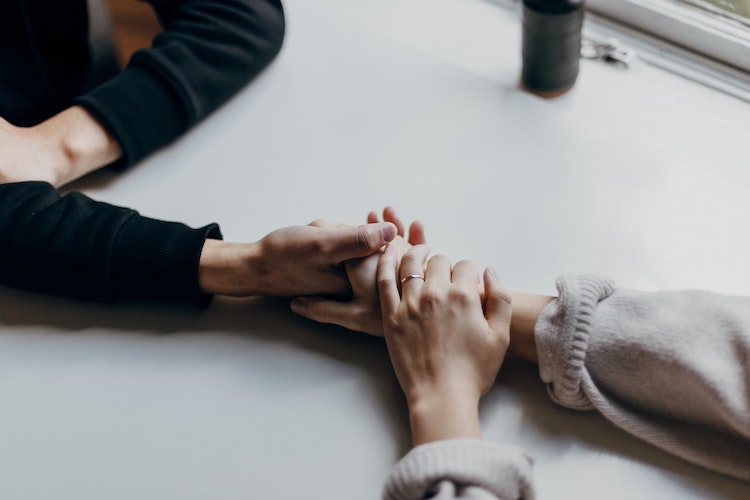
Roughly 8 million adults have PTSD during a given year. About 10 of every 100 women develop PTSD, in comparison to about 4 of every 100 men. Learning to talk to someone with PTSD is crucial in helping them recover. Here are 5 tips for talking to a loved one with PTSD.
1. Provide Support
Many people with PTSD may resort to withdrawing from their friends and family. It’s important to stand by them, while also respecting their boundaries. Don’t force them into talking about their traumatic experiences—just sitting with them can go a long way. Allowing them to feel comfortable again will require your time and patience, so reassure them you will be there for them.
2. Listen
When they are ready to talk about their trauma, they will. This might mean going over the event multiple times. Encourage them to verbalize what happened as much as they need and express that you want to listen. It’s important to not be judgmental and respect their feelings and vulnerability. You don’t want to discourage them from talking about their trauma, so make sure to never invalidate their trauma or shift the focus onto yourself.
3. Regain Trust
Let your loved one know you are committed to being by their side, don’t give them any doubts. Incorporating structure or restoring past routines can provide a sense of stability and security for them. Also, reflecting on their accomplishments and growths with them will show them they are capable of recovery.
4. Handle Triggers
Being able to navigate your loved one’s triggers is beneficial for the both of you. With some trial and error, you can find what works best. These techniques can differ from person to person, so communication is key when determining how to combat these triggers. One effective coping strategy to manage triggers is deep breathing.
5. Support Treatment
It’s helpful to use positive language when mentioning therapy. If it makes them feel safer and they are comfortable, offering to do conjoint therapy shows an immense amount of commitment. It’s important to emphasize the benefits of treatment and let them know it might take time, but slow progress is still progress.